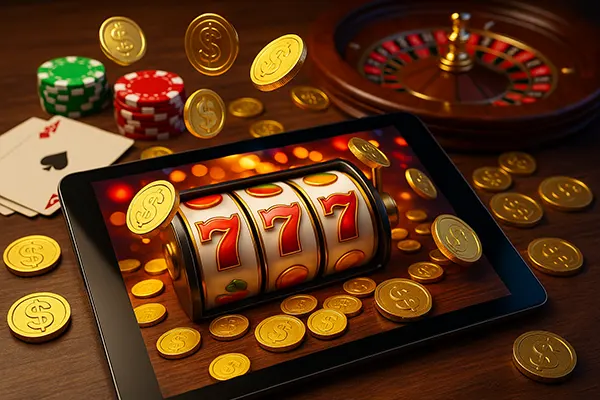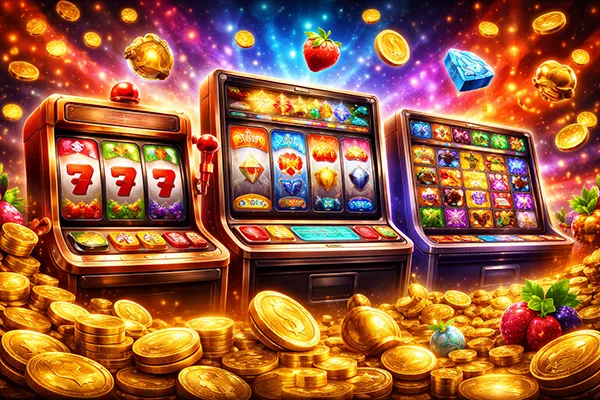
Free-to-Play Gambling: Does a Money-Free Future Await Casino Entertainment?
In recent years, the gambling industry has been undergoing significant transformation. Amid changing regulations, evolving user preferences, and technological advances, one concept is increasingly coming into focus — gambling without monetary stakes. Could free-to-play casinos represent the future of entertainment without financial risk? Let’s explore this phenomenon from multiple angles.
The Core of Free-to-Play Gambling: What Is It Really?
Free-to-play (F2P) gambling refers to digital games of chance that mimic the mechanics of real-money gambling — such as slots, poker, and roulette — but without actual cash involved. Instead, players use virtual currency, earned through gameplay or rewarded daily, to continue playing without making deposits.
This format often appears in mobile applications and browser-based games, many of which are available in app stores globally. While gameplay resembles traditional casino experiences, winnings cannot be converted to real money. The aim is entertainment, not financial gain.
The target audience for such games varies widely. Some users enjoy the thrill of strategic play, while others are drawn to the slot-style visuals and sounds. Without the financial commitment, F2P gambling becomes an accessible, risk-free pastime for millions.
Monetisation Without Gambling
Although players don’t wager real money, developers still generate revenue through optional purchases. Users may buy virtual coins or boosters to extend sessions or unlock features. Another source of income is advertising, either shown between games or integrated within the app interface.
Some critics argue that these microtransactions create a pseudo-gambling ecosystem, especially when players feel compelled to spend in order to progress. However, since no real winnings are involved, most regulators don’t classify F2P models as gambling.
This legal distinction allows developers to distribute games in jurisdictions where online gambling is restricted, providing broader market access while avoiding the licensing hurdles associated with real-money casinos.
Regulatory Landscape and Ethical Concerns
One of the biggest questions surrounding free-to-play gambling is whether it encourages real gambling habits. Studies have shown that while some players transition from F2P games to money-based platforms, the majority do not. However, the concern remains, especially for minors or vulnerable users.
Many countries have started to scrutinise loot boxes and similar in-game mechanisms, which are structurally close to gambling. In response, some developers have introduced clearer disclaimers and age restrictions. Others have opted to remove such elements entirely to avoid regulatory issues.
Consumer protection is a growing priority. Responsible developers now include spending caps, parental controls, and transparent odds disclosures to build trust with users and align with emerging ethical standards.
Differences from Social Casinos
It’s important to distinguish between pure free-to-play gambling and social casinos. Social casinos often simulate real-money gambling but include social features like leaderboards, gifting, and friend matches. While gameplay is similar, social interaction is the core value.
Social casinos tend to blur the line between gambling and social gaming. In some cases, they’ve attracted legal scrutiny for promoting addictive behaviour without the safeguards of licensed casinos. Nevertheless, many players view them as casual entertainment.
Free-to-play gambling, when done transparently and ethically, offers a simplified experience without real financial pressure or peer competition — a contrast to both real-money and socially competitive alternatives.

Future Outlook: Trends and Potential
As of mid-2025, interest in alternative gambling experiences continues to grow. Virtual and augmented reality (VR/AR) are being integrated into F2P casino-style environments, providing more immersive and interactive experiences. These innovations could redefine the entertainment value of such games.
Artificial intelligence also plays a growing role in adjusting difficulty levels and enhancing personalisation. Dynamic gaming experiences based on user behaviour increase retention and enjoyment, without necessarily leading to financial dependence.
With the expansion of 5G and affordable mobile devices, access to these games is easier than ever. As developers continue to refine monetisation models and regulatory bodies adapt to new forms of play, F2P gambling may cement its place as a mainstream digital pastime.
Opportunities for Education and Prevention
Free-to-play gambling can serve an unexpected role in raising awareness about gambling mechanics. When presented transparently, these games offer a safe environment to learn how odds, randomness, and loss cycles work — potentially reducing misconceptions about real-money games.
For educators and therapists, such games may be used as tools in preventive strategies or counselling, helping individuals understand and manage risky behaviours without actual exposure to financial loss.
Looking ahead, if developers embrace this educational role more deliberately, the F2P gambling model could contribute positively to digital wellbeing, rather than merely mimic the casino experience.
Latest News
-
Randomness and RNGs: Myths About “Rigged” ...
Few topics create more arguments in gambling than the idea that slots are “rigged”. In 2026, the …

-
Types of Slots: Classic, Video Slots, Mega...
Slot games look similar on the surface, but the underlying mechanics can feel completely different once you …

-
How to Keep a Bankroll Journal Properly in...
A bankroll journal is not a “nice-to-have” habit — it is a control tool that shows what …

